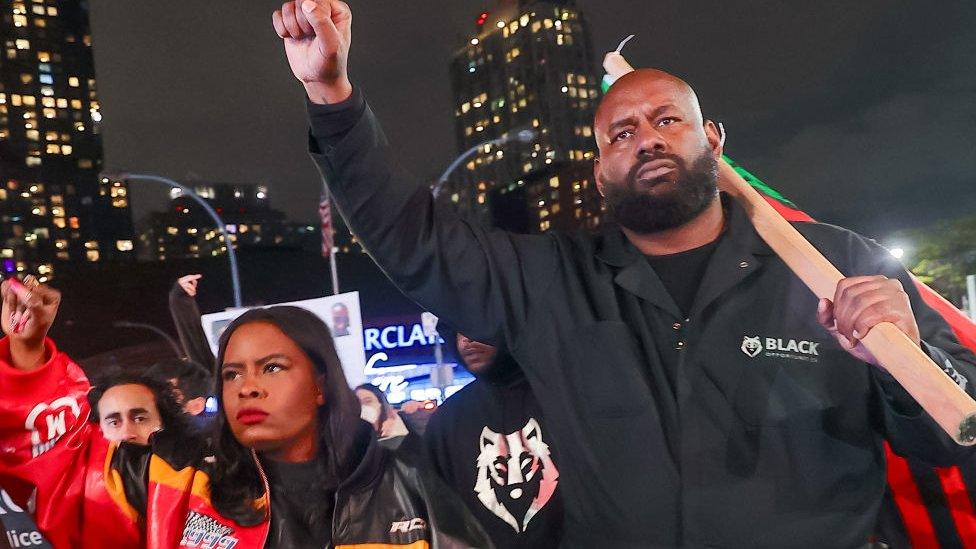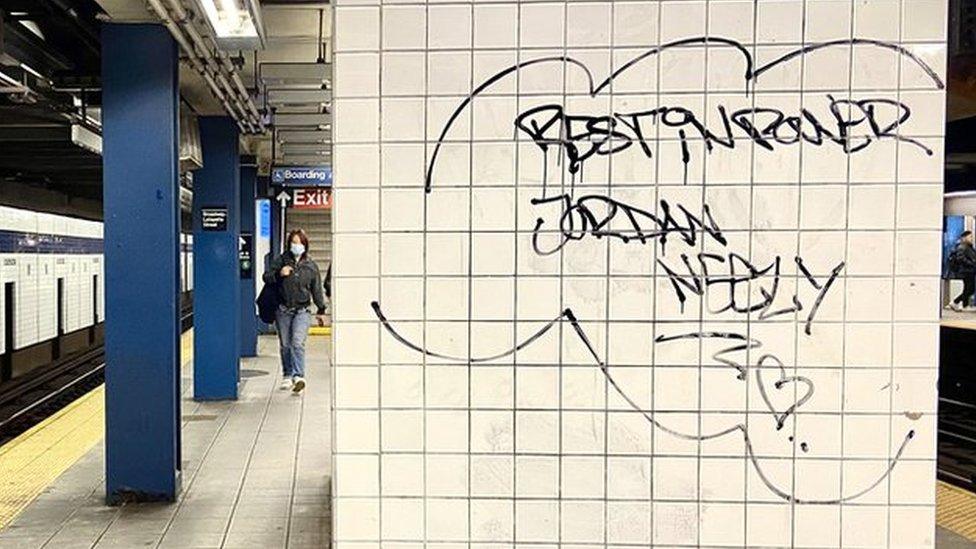Daniel Penny: Ex-Marine defends NYC subway chokehold
- Published

Protesters in New York City have called for an arrest to be made
A 24-year-old ex-Marine who placed New York City subway passenger Jordan Neely in a deadly chokehold has defended his response, saying he and other passengers were acting in self-defence.
In a statement issued by his lawyers on Friday, Daniel Penny expressed condolences to Mr Neely's family.
His cause of death has been ruled a homicide. No charges have been filed for his death so far.
The case has focused attention on crime and homelessness on public transport.
"We would first, like to express, on behalf Daniel Penny, our condolences to those close to Mr Neely," his lawyers said in a statement issued to US media.
The statement says that Mr Neely - a 30-year-old homeless Michael Jackson impersonator, "had a documented history of violent and erratic behaviour" which they said was "the apparent result of ongoing and untreated, mental illness".
The lawyers add that Mr Neely had been "aggressively threatening" their client and other passengers, and that Mr Penny and others "acted to protect themselves, until help arrived".
"Daniel never intended to harm Mr Neely and could not have foreseen his untimely death."
The Manhattan prosecutor and police are currently deciding whether to press charges. Homicide means a death caused by another person, but is not necessarily a murder.
The incident happened on Monday afternoon on the F-line train in the SoHo section of Manhattan.
A video captured by a freelance journalist on the train shows the former Marine holding the 30-year-old man - who was said to have been acting erratically - around the neck for two minutes and 55 seconds.
Two other passengers are also seen restraining his arms. All three later let go of the man, who is then seen lying motionless on the floor.
Police told CBS News, the BBC's US partner, that Mr Penny told other passengers to call 911 during the struggle with Mr Neely.
The network reports that a grand jury will probably meet next week to determine whether there is enough evidence to press charges. If charges are brought, Mr Penny will probably argue that his reaction was justified to defend himself.
In order to be found guilty, prosecutors must prove that he used deadly force without believing that Mr Neely was also prepared to use deadly force, experts told the New York Times.
Watch: New Yorkers demand action on homelessness
Protests have been held calling for an arrest to be made in the wake of the chokehold death.
The statement by Mr Penny's lawyers went on to say: "We hope that out of this awful tragedy will come a new commitment by our elected officials to address the mental health crisis on our streets and subways."
Related topics
- Published6 May 2023

- Published4 May 2023

- Published28 January 2023
